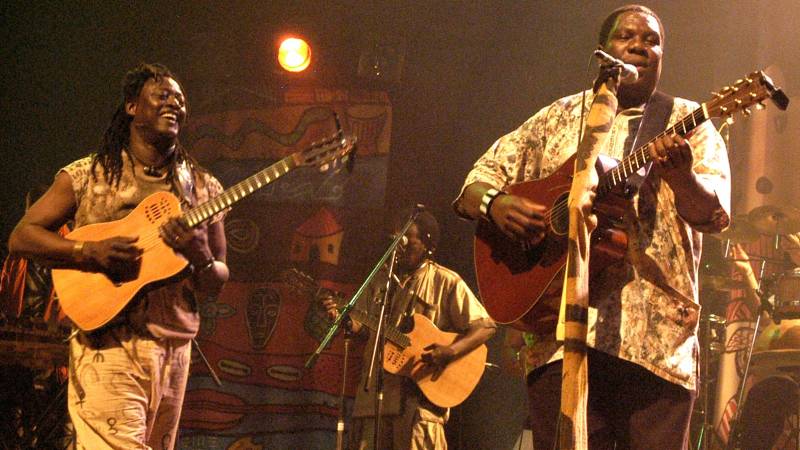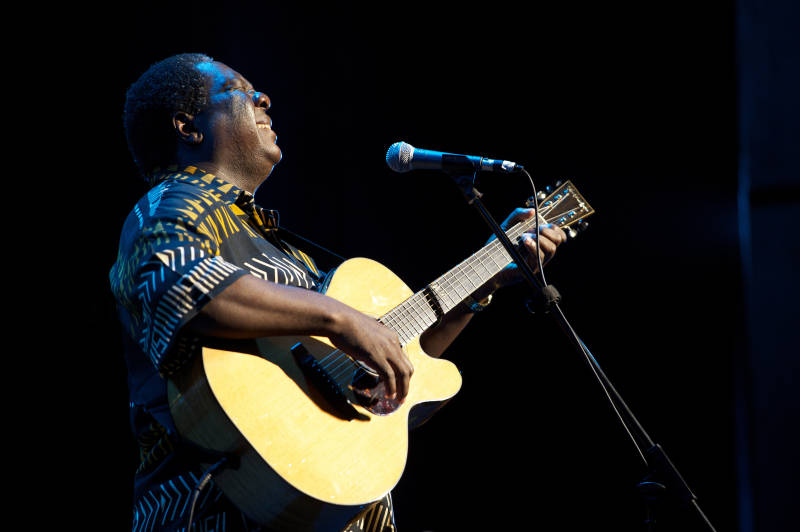For the past several years, the headlines out of Mali and South Africa have been, to put it bluntly, disheartening. In Mali’s north, extremists associated with al-Qaeda have tried imposing a harsh version of their beliefs, which includes a ban on all music. In November, terrorists killed 20 people in a brazen attack on Mali’s capital. In South Africa, meanwhile, violence has surged against African immigrants as the country’s economy continues to unravel and unemployment continues to hover over 20 percent. What can a musician from Mali or South Africa possibly do to counteract the struggles in their homelands?
For Habib Koite and Vusi Mahlasela, the answer is simple: Play on. Koite and Mahlasela encourage people — through passionate vocals and guitar-playing — to see Mali and South Africa not as typical African trouble spots but as places in transition like the rest of the world. As places, in other words, that anyone can relate to. Koite and Mahlasela make the complexities of their countries universal, also singing about subjects that go far beyond the borders of West and South Africa.
When Koite and Mahlasela perform together in San Francisco on Saturday, March 19 — kicking off their “Acoustic Africa” tour of the United States that also sees them play in Rohnert Park on March 20 and in Santa Cruz on March 28 — the two will play the role of musical ambassadors.
For Mahlasela, Nelson Mandela’s death in 2013 only heightened the ways that Mahlasela’s music acts as a kind of unifying force for those who listen. Mahlasela says that one of his most famous songs, “When You Come Back” — written during South Africa’s apartheid years, when Mandela was jailed and a swath of the country’s black leadership lived in exile –- is still relevant today. The tune’s allusions are more metaphorical now.



